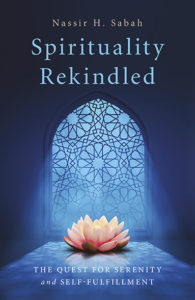Nassir H. Sabah
According to the Quran, humans possess three entities: body, spirit (Arabic ruh), and self (Arabic nafs). “Soul” is rather ambiguous as it can mean spirit or self, although these are very different. “Spirit” is the essence of life, whereas “self” is the essence of our conscious being that defines every human as a unique individual.
The body-spirit-self has been compared to a car. The material parts of the car are analogous to the human body. The ignited fuel (or the charge in the batteries of an electric car) that “brings the car to life” and makes it move is analogous to the spirit. The self is analogous to the driving agency that controls the car, which could be a human driver or some form of autonomous or remote control, that moves the car in a purposeful manner.
The spirit and the self depart the body upon death, which is that of the body only. The spirit and the self do not die. The statement, “Every self shall taste death…” (Q3:185), (Q21:35), (Q29:57) was interpreted very rationally by the eminent Islamic commentator, al-Razi, who argued that the taster must exist during the act of tasting and understood the statement to mean that the self tastes the death of the body. He concluded from this and other verses that the self is different from the body and does not die with the death of the body.
According to the Quran, the self eventually rejoins some bodily form in resurrection, to be followed by an encounter alone with God on the Day of Judgement. As a result, Heaven or Hell is the abode.
The Quran hardly reveals anything about the spirit, stating in (Q17:85): “They ask you (O Prophet) about the spirit. Say, ‘Its nature is known only to my Lord, and you (O humans) have been given but little knowledge.’” With limited human knowledge, the nature of life is beyond human understanding.
To a pious Muslim, death is only a transition from this trial of worldly life and its tribulations to eternal bliss in Heaven, which is beyond human imagination (Q32:17): “No self knows what blissful delights are kept hidden for them as a reward for what they used to do.”
Nevertheless, to make Heaven somewhat comprehensible to the Arabs of the 7th century CE, and attractive compared to their desert milieu, it is portrayed allegorically in terms of gardens beneath which rivers flow, bearing in mind that in the afterlife, neither time nor space are what humans perceive in life on Earth.
To the discerning reader of the Quran, the bliss of Heaven is an indescribable spiritual reward, “…For them shall be gardens beneath which rivers flow, abiding therein forever. God is content with them, and they are content with Him. That is the great triumph.” (Q5:119). Al-Razi refers to this state of mutual contentment as one of the wondrous secrets that cannot be expressed in words.
Given the unimaginable contrast between the state in Heaven and that on Earth, a pious Muslim accepts death with gleeful anticipation, as reflected in many early writings. In his letter to the King of Persia, the famous Islamic commander, Khalid ibn al-Walid, referred to his army as “people who love death as much as you love life”.
The following verses are attributed to the fourth Caliph and cousin of the Prophet Muhammad, al-Imam Ali ibn Abi Talib:
“Your mother gave birth to you, son of Adam, crying while people around you were laughing with pleasure.
Hence, perform your daily acts (in the service of God and to His satisfaction) so that when they cry on the day of your death, you will be rejoicing in laughter.” Evidently, the rejoicing of death by a pious Muslim is something incomprehensible and rather grotesque in the context of today’s prevailing materialistic and individualistic culture. But for the pious Muslim it is a reality that underlies the very purpose of our existence, which is to seek the loving-mercy of God to attain eternal bliss in Heaven through virtuous conduct of doing good and reflecting what can be humanly reflected from His glorious and perfect attributes, such as loving-mercy towards all around us, justice, and forgiveness.
